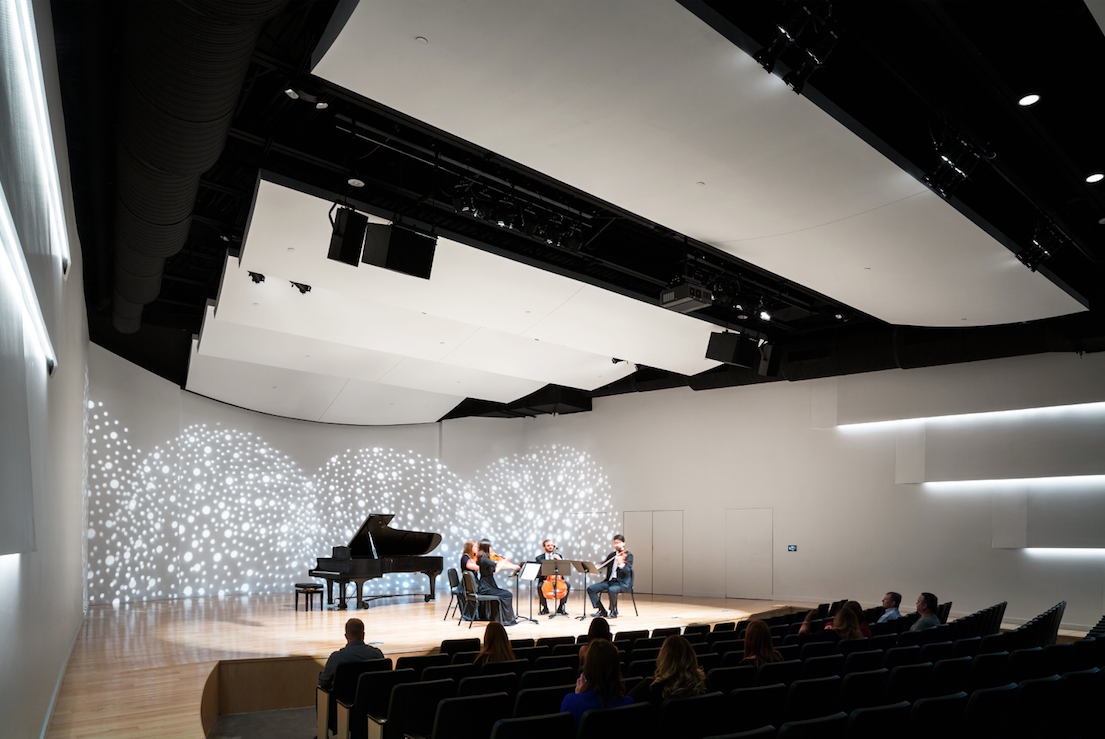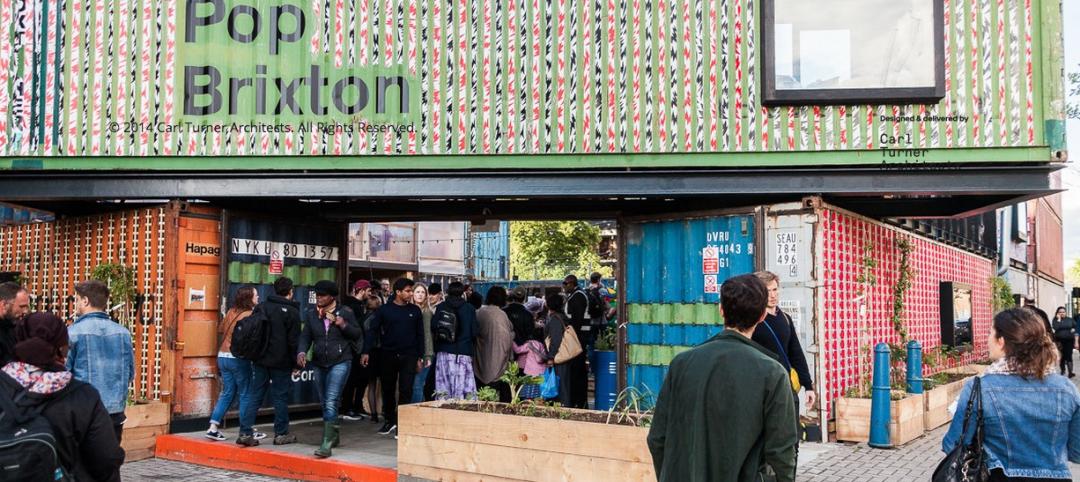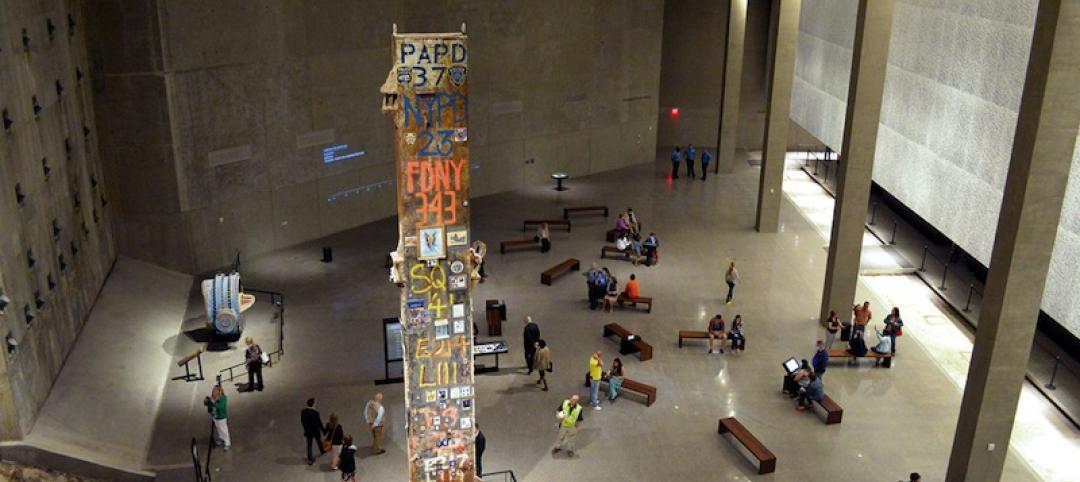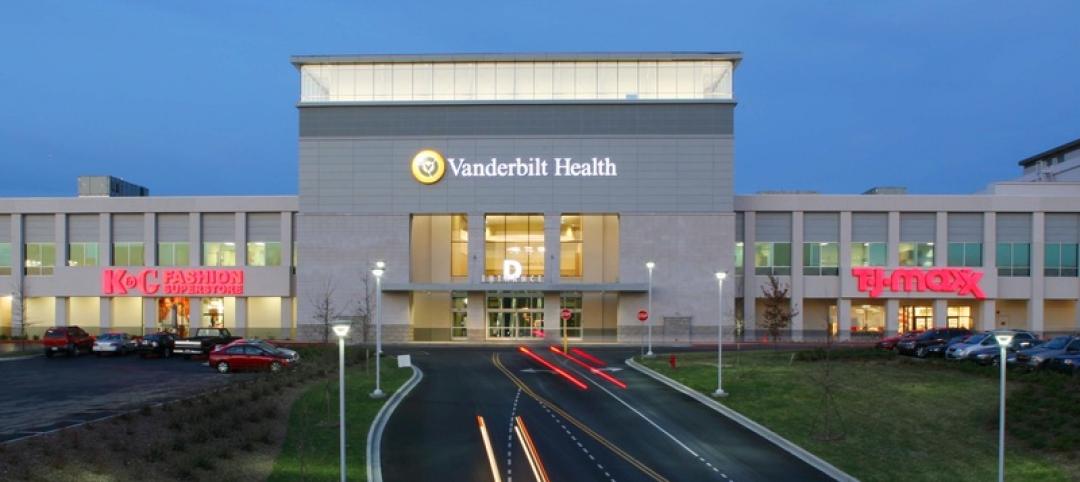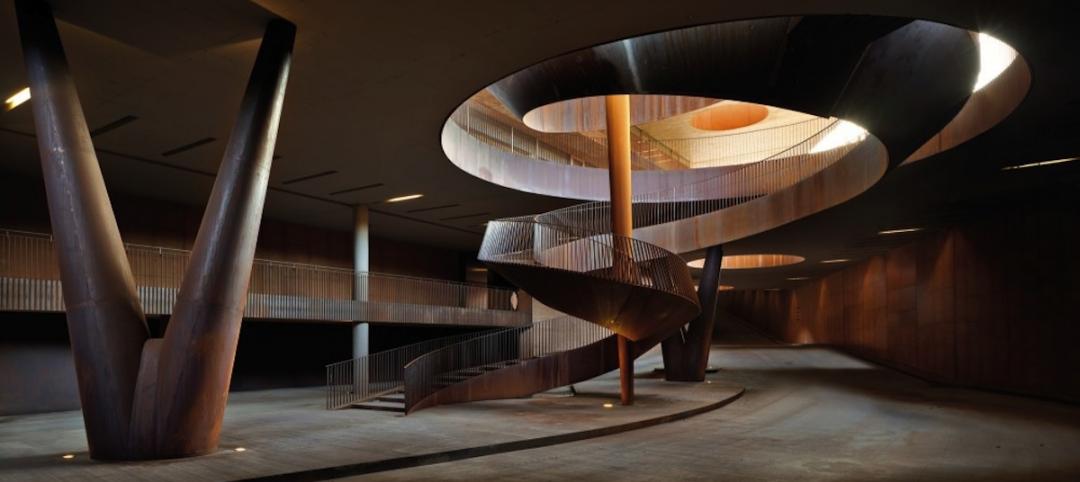A couple of years ago, Ruth Meints, Executive Director of the Omaha Conservatory of Music, got a notice from the organization’s landlord that the conservatory would have to vacate its space in a local community center by January 2016. Meints, who also teaches violin and viola at the OCM, wasn’t crazy about the space to begin with—it was small and had acoustical problems—but it was home. What to do?
Luckily, Meints happened to be in touch with David Lempke, HDR’s Vice President and Design Principal, and Lempke happened to be aware that Temple Israel had built a new facility in town, which freed up its old building as a possible home for the conservatory.
The old temple, built in 1952, was in decent shape, Lempke recalls. The conference room, administrative offices, and classrooms could be reprogrammed relatively easily for the conservatory’s needs for studios and teaching spaces. But the windows and roof needed to be replaced. Many of the walls lacked insulation or vapor barriers. The HVAC system had no humidity control—essential to protect the musical instruments—and would have to be replaced.
After $15 million in reconstruction, the new 40,000-sf conservatory opened in late 2015, well ahead of the deadline. The sanctuary, with its sloping floors and sidewalls, was converted to a shoebox-shaped performance center with a 48-foot-wide stage. Irwin Seating Company installed telescopic seats whose backs and bottoms fold up and retract, bleacher-style, into the back wall. This more than doubled the seating capacity to 500.
These days, Meints can lead her Violin Sprouts - the program she pioneered in 2013 for young musicians - under much improved conditions.
 After a devastating fire, Congregation Kehilath Jeshurum in New York reconsidered how to expand its sanctuary (pictured in its rebuilt state) and its school. Image: Chris Cooper.
After a devastating fire, Congregation Kehilath Jeshurum in New York reconsidered how to expand its sanctuary (pictured in its rebuilt state) and its school. Image: Chris Cooper.
OUT OF THE ASHES
Five years ago, FXFowle Architects was overseeing the renovation of Congregation Kehilath Jeshurun’s synagogue, in the Upper East Side of New York City, when the roof went up in flames. The fire severely damaged the century-old sanctuary but spared the lower school and the limestone neo-Classical façade. The fire prompted the institution to reconsider how to grow its facilities to meet the needs of its congregation and students.
Ann Rolland, FAIA, Principal with FXFowle, says that her firm recommended moving the 1,150-student school and gym to higher floors, which would more clearly delineate the functions of the building along its horizontal and vertical axes. That move required erecting a complicated structural system to support the two-story addition and relieve pressure on the synagogue’s walls during construction.
FXFowle brought the 18,000-sf sanctuary up to code. Italian crafts workers, using traditional methods, recreated columns, egg-and-dart molding, and new scagliola finishes on the main ark and new column enclosures. The steel reinforcement within the sanctuary had to be positioned to minimize seating loss for congregants.
This 80,000-sf project, which was completed in the summer of 2015, came in on budget at $40 million, says Rolland. ZDG LLC was the cost estimator; project management firm VVA was owner’s representative.
The synagogue’s worst fear—that its congregation would drift away during the reconstruction—proved to be unfounded. “This project was about rebuilding and revitalizing a community,” says Rolland.
Related Stories
Museums | Sep 29, 2015
Designs unveiled for Warsaw Art Museum and Theatre
Emphasizing the building’s role in the public sphere, the museum will be accessible from all sides.
Performing Arts Centers | Jul 27, 2015
Vox Populi: Netherlands municipality turns to public vote to select design for new theater
UNStudio’s Theatre on the Parade received nearly three-fifths of votes cast in contest between two finalists.
Cultural Facilities | Jul 17, 2015
Rojkind Arquitectos serves up concert hall on the rocks in Mexico
The same way Frank Gehry’s Guggenheim has put Bilbao on the map, architect Michel Rojkind hopes his design will be “an urban detonator capable of inciting modernity in the area.”
Modular Building | Jun 10, 2015
London debuts business complex made from 50 shipping containers
London's newest business complex, Pop Brixton, will support local entrepreneurs, create jobs, and is made entirely of shipping containers.
Building Team Awards | Apr 10, 2015
14 projects that push AEC teaming to the limits
From Lean construction to tri-party IPD to advanced BIM/VDC coordination, these 14 Building Teams demonstrate the power of collaboration in delivering award-winning buildings. These are the 2015 Building Team Award winners.
Building Team Awards | Apr 10, 2015
New arts venue reinvigorates Virginia Tech's campus
The STV-led Building Team creates a world-class performance and arts venue with learning and entrepreneurial dimensions.
Retail Centers | Mar 10, 2015
Retrofit projects give dying malls new purpose
Approximately one-third of the country’s 1,200 enclosed malls are dead or dying. The good news is that a sizable portion of that building stock is being repurposed.
Architects | Feb 27, 2015
5 finalists announced for 2015 Mies van der Rohe Award
Bjarke Ingels' Danish Maritime Museum and the Ravensburg Art Museum by Lederer Ragnarsdóttir Oei are among the five projects vying for the award.
Cultural Facilities | Feb 20, 2015
‘Floating’ park on New York’s Hudson River moves one step closer to reality
The developers envision the 2.4-acre space as a major performance arts venue.
| Jan 17, 2015
When is a train station not a train station? When it’s a performance venue
You can catch a train at Minneapolis’s new Target Field Station. You can also share in an experience. That’s what ‘Open Transit’ is all about.


